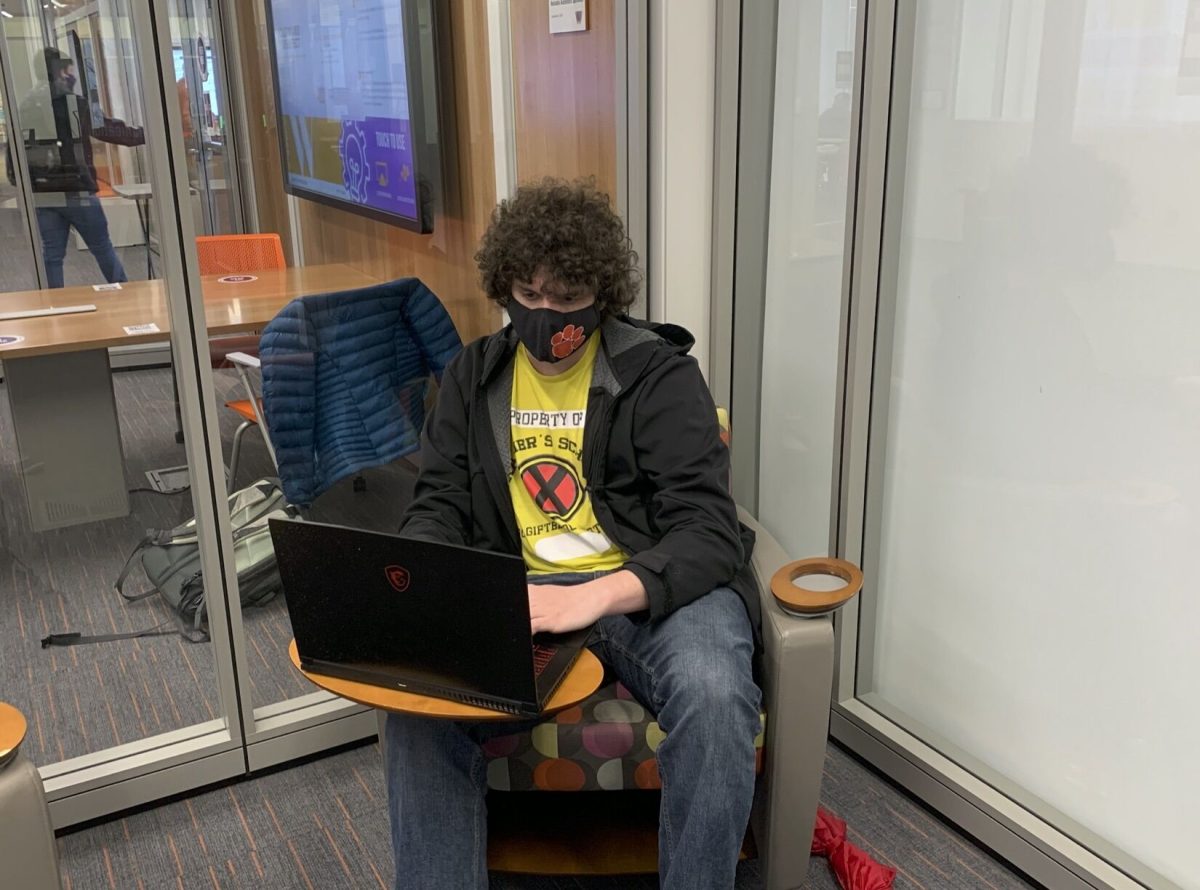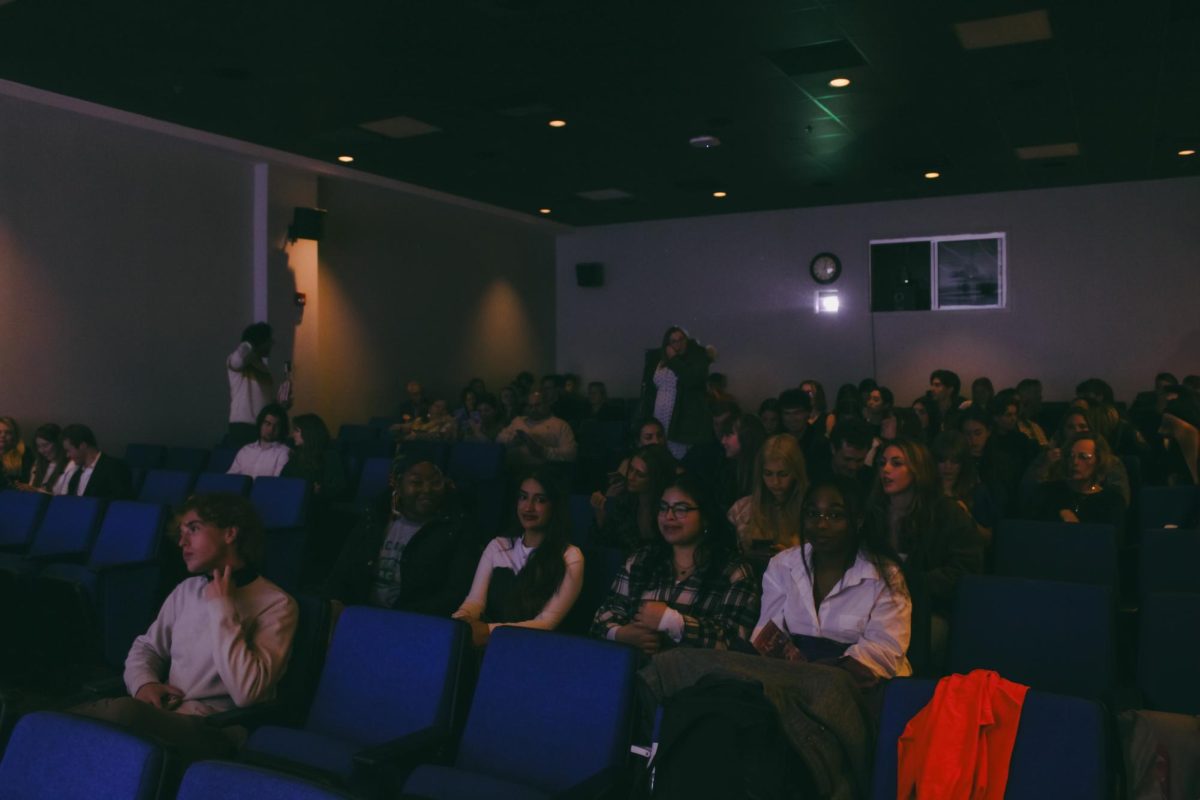All great films come from one idea—a single concept that grows and develops with the help of a large number of people. The process itself is extremely complex and hard to understand and learn. Clemson University tries to teach students about films and how they are made through various classes, but it is hard to grasp the concepts without actually working on a film yourself.
In the fall of 2020, a Creative Inquiry class was dedicated to creating documentary films where the majority of crew members were students from various majors. Michael Collins led the class and provided input based on his previous work in the industry. To get the most out of the experience, students were able to choose their roles and gain experience across multiple fields of expertise such as screenwriting, producing and cinematography.
However, making a documentary poses unique challenges that are not seen in the average film. Namely, a documentary requires facts and research on the selected topic. You can’t write a story about a man that you know nothing about. For thefilm they made, students and advisors were responsible for researching and reading all about the subject, Kenneth Burke, and his work. While it is certainly not the most extravagant part of filmmaking, research provides a foundation for a story and enables the writers to accurately portray the subject material.
The film is entitled “Wordman.” It tells the story of Kenneth Burke, a literary theorist who has also written poems, essays and novels. David Blakesley, an English professor at Clemson University and the executive producer of the documentary, is trying to make Burke’s rhetorical theory reach more people since it “is not especially accessible to the general public.” More specifically, the film will tell the story of how Burke’s theories of rhetoric emerged in the 1930s and 1940s during the rise of fascism and ensuing global conflicts.
Kenneth Burke “advanced our understanding of the power and impact of words” and ultimately warns us of the dangers of fascism, said Blakesley. To delve into his important and extensive messages and life, everyone working on the film had to do prior research about the topic. Since the research portion has been completed, Blakesley said they are at the phase “of collecting assets and planning on-site filming.” Unfortunately, that has been delayed due to COVID-19, and the team hopes to film next fall.
Along with setting goals for the future, the class accomplished writing the film treatment, which is an outline of sorts, and nearly completing the trailer. They have also developed arguably one of the most important aspects of a film: a script. While it is not set in stone, the script does have a clear direction. The film also intends to use interviews, which cannot be scripted.
Eugene Rocco Utley, a senior world cinema major, is one of the writers who was responsible for creating the script for the trailer. It was an important step. Utley said it “helped narrow down what the ideas and themes were that we wanted to achieve with the story.” While the process was difficult to do solely online, the group was able to develop their plan through collaborative writing, according to Utley.
Nic Brown, a screenwriting professor in the English department, teaches students how to write their own compelling stories. He states that writing screenplays tends to be the first major step since “films build off of screenplays as if they are blueprints.” The process of developing a story is complicated, but Brown also states it is important for the story to be engaging for the writer. Otherwise, there is no indication that it would be captivating for the audience.
While everyone involved tried to meet two times a week, most of the work was done individually and everything was brought together at the meetings. Online learning during pre-production was not ideal, but it also did not appear to deter progress.
Brodie Blizzard, a junior world cinema major, did not feel that the online environment impacted the work, but it was still not ideal for everyone involved. “I think that I and the rest of the crew wished we could meet in person,” said Blizzard. While the team was able to make the best of their circumstances, they look forward to collaborating in person.
Executive Producer Blakesley also spoke about some of the hardships. Planning online is not difficult, he said. But, for a number of reasons, creating original content like filming is challenging. It is also a challenge to interview people during this time, but there are also logistical issues when trying to share and learn the equipment, travel and even rehearse.
Another challenge that Blakesley deals with exclusively as the producer is funding for the project. He has applied for grants but, due to the club not being an established studio and without major work to show off, it has not been easy to secure funding.
Even with the setbacks, it is still a phenomenal opportunity for those interested in the film industry.
Collins said that having students make something with a professional focus helps expand their skill set. “Once you gain skills and true confidence in your abilities, you will always get work,” he said.
For those interested in screenwriting, Brown suggested writing and reading screenplays. It may seem obvious, but Brown has encountered people who only watch films, even though reading the screenplay provides more insight into the profession. “Screenwriters are not filmmakers,” he said, “They’re writers.” Reading and writing reveals how the process works.
As a student, Blizzard also stressed the importance of coming up with your own ideas and developing them. While making an entire film is hard, there are many ways to get involved in the process, “from writing to visuals to sound—there’s something in film for everyone.”
The process of developing a story is complicated, and this is clearly seen during the production of “Wordman.” However, the students are being guided through the process and learning about an industry they are all interested in working for in the future. Classes like this CI allow for students to explore their creative interests with the help of experienced mentors and get a unique insight into their chosen fields.
This article was written by a student of ENGL 3330: Writing for the News Media, which is taught by Mike Pulley.
Categories:
The ins and outs of a student film production at Clemson
Adrienne Herr, Contributor
April 26, 2021
0
Donate to The Tiger
Your donation will support the student journalists of Clemson University. Your contribution will allow us to purchase equipment and cover our annual website hosting costs.
More to Discover








